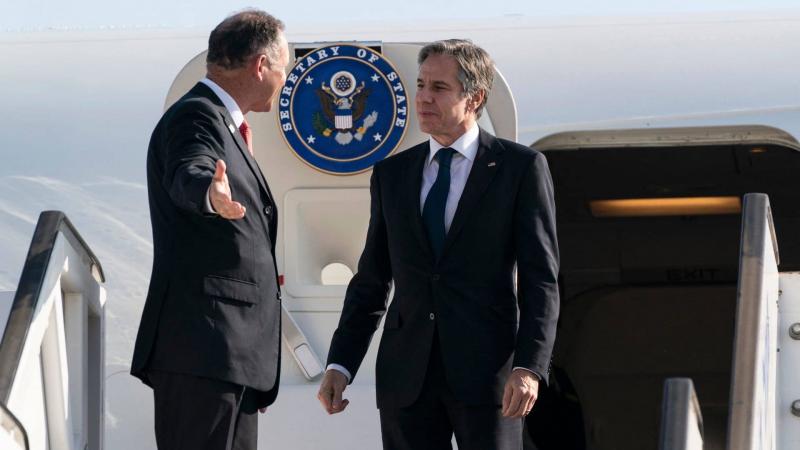As U.S. Secretary of State Antony Blinken prepares for another round of complex talks in Tel Aviv to push for a ceasefire agreement in the Gaza Strip and a prisoner exchange between Israel and Hamas, a sense of optimism appears to be emerging. U.S. officials have expressed some hope about the possibility of reaching an agreement that secures a ceasefire and the release of Israeli prisoners held by Hamas in the besieged enclave since October 7.
Blinken confirmed today, Wednesday, that the U.S. is "determined" to achieve a ceasefire between Israel and Hamas "now." This optimism follows the U.S. Secretary's description of Israel's offer as "very generous," according to CNN's reporting on Wednesday. The positive atmosphere comes amid Israeli assurances that an incursion into Rafah is inevitable, whether a deal is reached or not.
Conversely, informed sources revealed that Egypt sent "negative signals" to Israel from Hamas regarding the new proposal for prisoner release presented to the group, as reported by Israeli channel Kan. The sources explained that these "negative indicators" arose from the lack of guarantees to end the war by the end of the deal. However, they noted that these are "preliminary indicators," not a final response, as Israel awaits a delegation to Cairo based on the final response that Egypt will receive from Hamas.
A Hamas source revealed last night that the group's response to the Egyptian proposal for a ceasefire in Gaza and the prisoner exchange will be provided within the next few hours or days. The source stated in comments to Al Arabiya/Al Hadath that "there is an Israeli response that is 'somewhat' aligned with the group's conditions regarding the ceasefire, withdrawal from the Netzarim axis, and the return of displaced persons to northern Gaza."
The source pointed out that "implementing these three points will pave the way for negotiations on the issue of prisoners and the exchange process, which has detailed elements that will be discussed in the upcoming response." It is worth mentioning that the earlier Egyptian proposal to Hamas set a six-week ceasefire period in exchange for the release of around 40 Israeli prisoners. However, this period may be reduced if Hamas does not release more than 20 Israeli detainees.
Meanwhile, some gaps or issues remain concerning the age category and specific nature of the detainees outlined in the proposal, as well as the number of individuals permitted to return to northern Gaza by Israel. Negotiations held between the Israeli side and Hamas, under Egyptian, Qatari, and American sponsorship, led to the release of around 100 Israeli prisoners in exchange for the release of over 400 Palestinian prisoners. Approximately 130 Israelis are still believed to be held in Gaza, with estimates suggesting that around 34 of them are likely deceased, according to Israeli officials.




